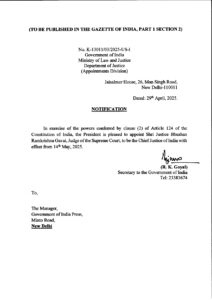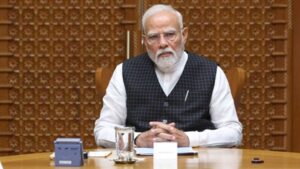PM Vishwakarma Yojana to benefit 30 lakh families: Ashwini Vaishnav
Bhubaneshwar (Odisha) [India], September 17 (ANI): Lauding the PM Vishwakarma scheme announced by PM Modi, Union Minister Ashwini Vaishnav on Sunday said that around 30 lakh families in the country will benefit from this scheme.
“Prime Minister Narendra Modi initiated the very important ‘PM Vishwakarma’ scheme…Around 30 lakh families in the country will be benefitted from this scheme,” Vaishnav said in Bhubaneshwar.
The Minister said that the skilled individuals, often working quietly behind the scenes, have played a pivotal role in creating India’s rich tapestry of art, culture, and economic vibrancy.
“Today PM Modi has launched very important schemes of ‘Shilpi’ (craft workers) of society, Those are traditional craft workers of India, to connect these ‘Karigars’ with the modern economy, from modern packaging to modern marketing of crafts, use of modern tools and to give economic aid, 30 lakh beneficiary will get the benefit of PM Vishwakarma Yojana,” he said.
Defence Minister Rajnath Singh took part in the launch of PM Vishwakarma scheme which coincided with PM Narendra Modi’s birthday and said that PM Vishwakarma scheme would give identity to craftspersons.
Rajnath Singh said, “Since 2014 we have connected small-level artisans with the banking system. PM Vishwakarma scheme would give identity to these small-level craftsmen. Under this scheme, training would also be provided to these craftsmen. During training, Rs 500 will be provided to these artisans per day. They would also be provided loans to start their own business. This loan would be provided at a meagre amount of 5 per cent without giving any security”.
The ‘PM Vishwakarma’ Scheme aims to provide financial support, training, and opportunities to artisans, ensuring the preservation and promotion of their traditional crafts.
It is a testament to the government’s commitment to preserving India’s cultural heritage and empowering those who have contributed to its prosperity for centuries.
As the scheme takes off, it is expected to revitalize traditional craftsmanship, create economic opportunities, and celebrate the artisans whose intricate work has been woven into the fabric of India’s history.
It reinforces the idea that artisans, like the revered Vishwakarma, continue to be the architects of India’s cultural and economic legacy.






